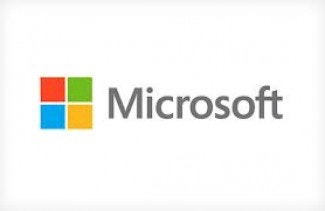Microsoft Corporation (NASDAQ:MSFT) was in 89 hedge funds’ portfolio at the end of March. MSFT has seen a decrease in hedge fund sentiment in recent months. There were 99 hedge funds in our database with MSFT positions at the end of the previous quarter.
According to most traders, hedge funds are seen as underperforming, outdated investment tools of yesteryear. While there are over 8000 funds trading at the moment, we at Insider Monkey look at the top tier of this group, around 450 funds. Most estimates calculate that this group has its hands on most of the hedge fund industry’s total asset base, and by tracking their highest performing picks, we have determined a number of investment strategies that have historically beaten the market. Our small-cap hedge fund strategy outstripped the S&P 500 index by 18 percentage points per annum for a decade in our back tests, and since we’ve started sharing our picks with our subscribers at the end of August 2012, we have topped the S&P 500 index by 24 percentage points in 7 months (see the details here).

With all of this in mind, we’re going to take a glance at the recent action regarding Microsoft Corporation (NASDAQ:MSFT).
How are hedge funds trading Microsoft Corporation (NASDAQ:MSFT)?
At the end of the first quarter, a total of 89 of the hedge funds we track were bullish in this stock, a change of -10% from one quarter earlier. With the smart money’s sentiment swirling, there exists an “upper tier” of notable hedge fund managers who were increasing their stakes meaningfully.
Of the funds we track, Donald Yacktman’s Yacktman Asset Management had the biggest position in Microsoft Corporation (NASDAQ:MSFT), worth close to $1.183 billion, comprising 6.1% of its total 13F portfolio. The second largest stake is held by Jeffrey Ubben of ValueAct Capital, with a $954.2 million position; 10.8% of its 13F portfolio is allocated to the stock. Some other hedgies that are bullish include Jean-Marie Eveillard’s First Eagle Investment Management, Boykin Curry’s Eagle Capital Management and Ken Fisher’s Fisher Asset Management.
Seeing as Microsoft Corporation (NASDAQ:MSFT) has faced a declination in interest from the entirety of the hedge funds we track, we can see that there were a few money managers that slashed their full holdings in Q4. Interestingly, Peter Rathjens, Bruce Clarke and John Campbell’s Arrowstreet Capital dumped the largest position of all the hedgies we watch, totaling close to $332.1 million in stock., and Rob Citrone of Discovery Capital Management was right behind this move, as the fund dumped about $149.4 million worth. These transactions are interesting, as aggregate hedge fund interest fell by 10 funds in Q4.
What do corporate executives and insiders think about Microsoft Corporation (NASDAQ:MSFT)?
Insider buying is best served when the company in focus has seen transactions within the past half-year. Over the last six-month time period, Microsoft Corporation (NASDAQ:MSFT) has experienced zero unique insiders buying, and 4 insider sales (see the details of insider trades here).
Let’s go over hedge fund and insider activity in other stocks similar to Microsoft Corporation (NASDAQ:MSFT). These stocks are Intuit Inc. (NASDAQ:INTU), Adobe Systems Incorporated (NASDAQ:ADBE), salesforce.com, inc. (NYSE:CRM), SAP AG (ADR) (NYSE:SAP), and Oracle Corporation (NASDAQ:ORCL). This group of stocks are in the application software industry and their market caps resemble MSFT’s market cap.


